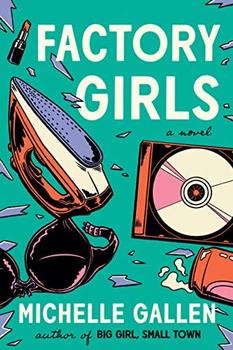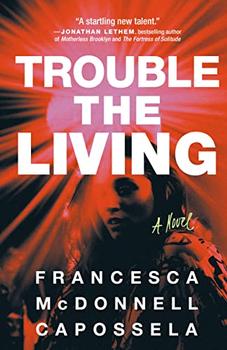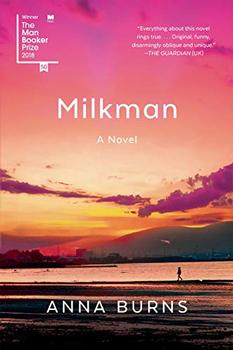Summary | Excerpt | Reviews | Beyond the book | Read-Alikes | Genres & Themes | Author Bio

A funny, fierce, and unforgettable read about a young woman working a summer job in a shirt factory in Northern Ireland, while tensions rise both inside and outside the factory walls.
It's the summer of 1994, and all Maeve Murray wants are good final exam results so she can earn her ticket out of the wee Northern Irish town she has grown up in during the Troubles—away from her crowded home, the silence and sadness surrounding her sister's death, and most of all, away from the simmering violence of her divided community. And as a first step, Maeve's taken a summer job in a local shirt factory working alongside Protestants with her best friends, kind, innocent Caroline Jackson and privileged and clever Aoife O'Neill. But getting the right exam results is only part of Maeve's problem—she's got to survive a tit-for-tat paramilitary campaign, iron 100 shirts an hour all day every day, and deal with the attentions of Andy Strawbridge, her slick and untrustworthy English boss. What seems to be a great opportunity to earn money before starting university turns out to be a crucible in which Maeve is tested in ways she may not be equipped to handle. Seeking justice for herself and her fellow workers may just be Maeve's one-way ticket out of town.
Bitingly hilarious, perceptive, and steeped in the vernacular of its time and place, Factory Girls is perfect for fans of voice-driven stories with bite, humor, and realism, such as the Netflix series Derry Girls and novels by Douglas Stuart, Roddy Doyle, and Anna Burns.
Gallen walks her narrative tightrope perfectly, balancing within Maeve's first-person account a story grounded in the horrific realities around her with the more ordinary — but still impactful, both to the protagonist and to readers — pains of growing up and of seeing one's girlhood fading rapidly away. Though Maeve (like Gallen) had a childhood scarred with violence, the harsh emergence into adulthood still comes as a shock. Gallen tempers this somewhat by adding flashback scenes throughout Factory Girls that allow Maeve a more introspective tone than in her normal stream of consciousness. In the present day, however, she can hardly fend off the effects of long hours, physical pain and sexual assault from her boss at the factory. Factory Girls brings the simmering, ever-present fear of the Troubles directly to readers through Maeve's descriptive observations, littered with memories of the haunting violence she has witnessed throughout her childhood...continued
Full Review
(743 words)
This review is available to non-members for a limited time. For full access,
become a member today.
(Reviewed by Maria Katsulos).
 The history of mostly separate education for Catholics and Protestants in Northern Ireland is a complicated one, existing alongside discriminatory and segregated employment, marriage and housing laws. In Michelle Gallen's Factory Girls, school is one of the most significant areas where the period of intense sectarian conflict between Protestants and Catholics known as the Troubles (1968-1998) imposes on the daily lives of those who have little agency — the children of Northern Ireland.
The history of mostly separate education for Catholics and Protestants in Northern Ireland is a complicated one, existing alongside discriminatory and segregated employment, marriage and housing laws. In Michelle Gallen's Factory Girls, school is one of the most significant areas where the period of intense sectarian conflict between Protestants and Catholics known as the Troubles (1968-1998) imposes on the daily lives of those who have little agency — the children of Northern Ireland.
Though Catholic protagonist Maeve Murray attended a nominally integrated school (in other words, one that accepted both Catholic and Protestant students), she notes that this was only for show, as in practice Catholics would not dare attend a ...
This "beyond the book" feature is available to non-members for a limited time. Join today for full access.

If you liked Factory Girls, try these:

by Francesca McDonnell Capossela
Published 2023
From Northern Ireland to Southern California and back―a mother and daughter confront the violence of the past in an enthralling novel about the possibility of love and redemption during the most transforming and unsettled times.

by Anna Burns
Published 2018
Winner of the 2018 Man Booker Prize, Milkman is a tale of gossip and hearsay, silence and deliberate deafness. It is the story of inaction with enormous consequences.